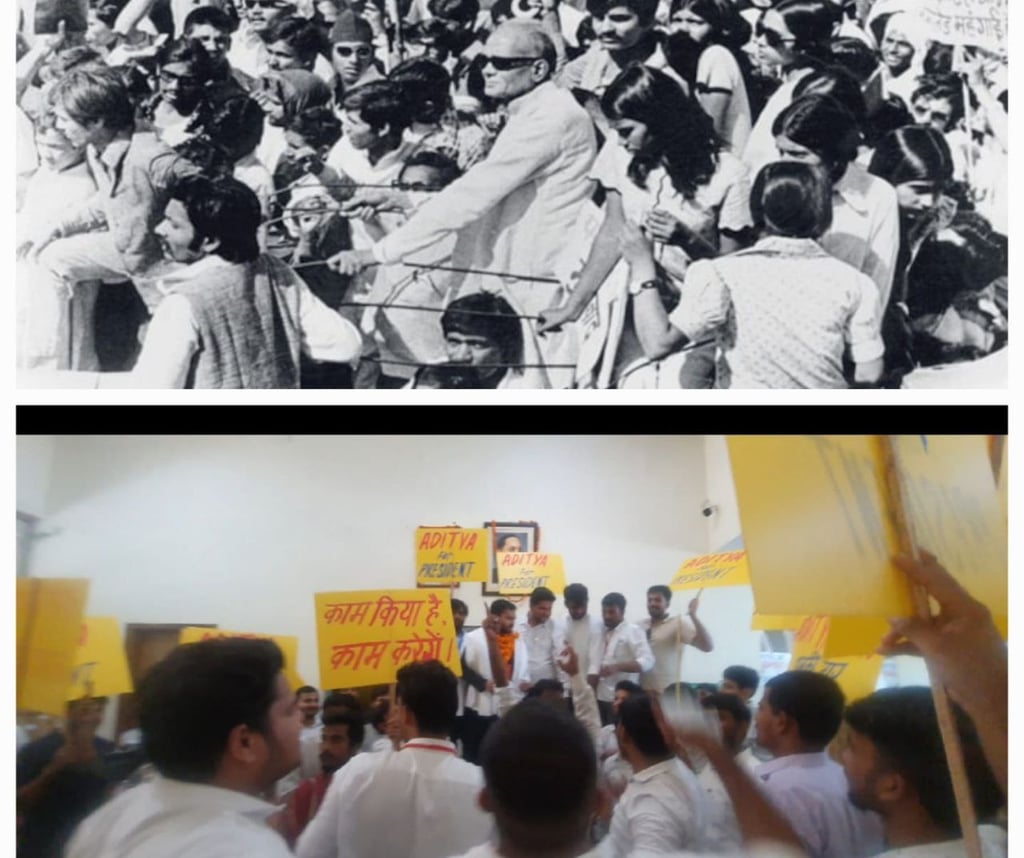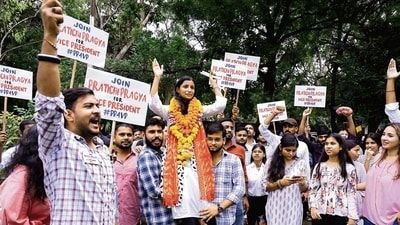From JP Movement to Today: The Changing Face of Student Politics


Indian student politics has historically been a catalyst for major political transformations. From the student protests that sparked the JP Movement in Bihar, which eventually led to the formation of India’s first non-Congress government, to the rise of leaders such as Lalu Prasad Yadav, Chandrashekhar, and Arun Jaitley, all emerged from the backdrop of student politics.
Over time, however, many universities, including BHU, Jamia, and Allahabad University, imposed restrictions on student elections due to recurring tensions and law-and-order concerns. These elections are no longer confined to campuses; the entire city often resonates with the fervor and excitement of the student electoral season.
A recent confrontation occurred in the DELHI UNIVERSITY STUDENT UNION ELECTION. The allocation of tickets in major student political groups (ABVP, NSUI) has also seen controversies, with many candidates chosen on caste considerations. This raises a critical question: are we conditioning our youth, at the very foundation of democracy, to vote primarily on caste, community, or religious lines? Dominant lobbies — such as the Jat and Gurjar groups from Delhi's neighbourhood to Rajasthan's stronghold — backed by money and muscle power, often overshadow aspirants from other regions like Uttar Pradesh and Bihar, leaving them with little hope of fair participation.
Meanwhile, left-leaning candidates, who attempt to pursue an alternative political narrative by questioning administrative decisions, have often been sidelined both by the media and students themself. This trend continues today — one SFI candidate’s nomination papers in the DUSU election nomination (10th September) were reportedly torn in the presence of police, while an AISF Vice-Presidential candidate, Malik Zaffar, had his nomination rejected on mere technicalities.
"Amidst all this chaos, the future of Indian student politics hangs in deadly shadows.”Such a political culture urgently requires fundamental reform. The future of Indian politics begins with college and university elections. These institutions must serve as training grounds — a ladder that nurtures and elevates future leaders, not one that entrenches divisions.


